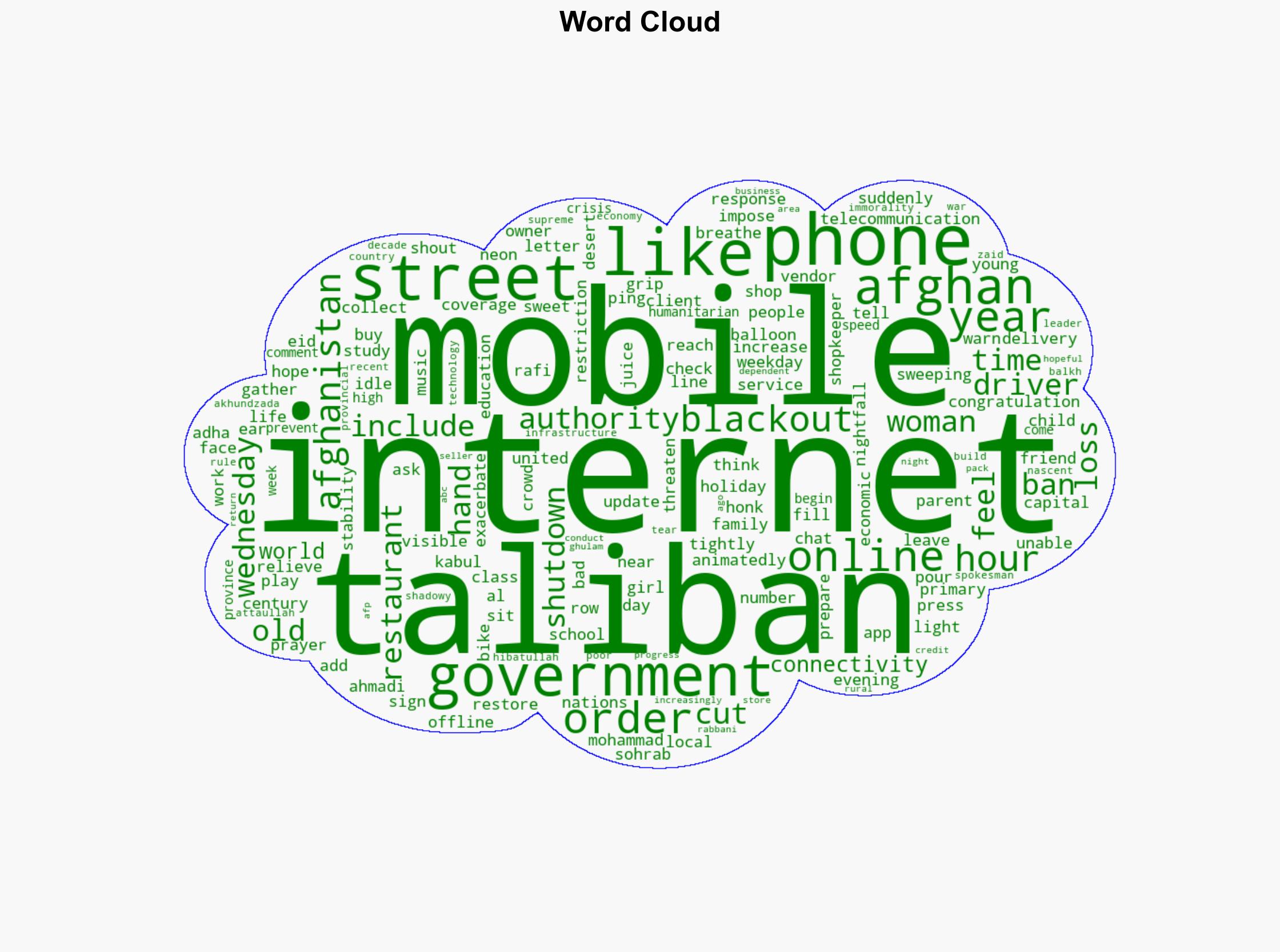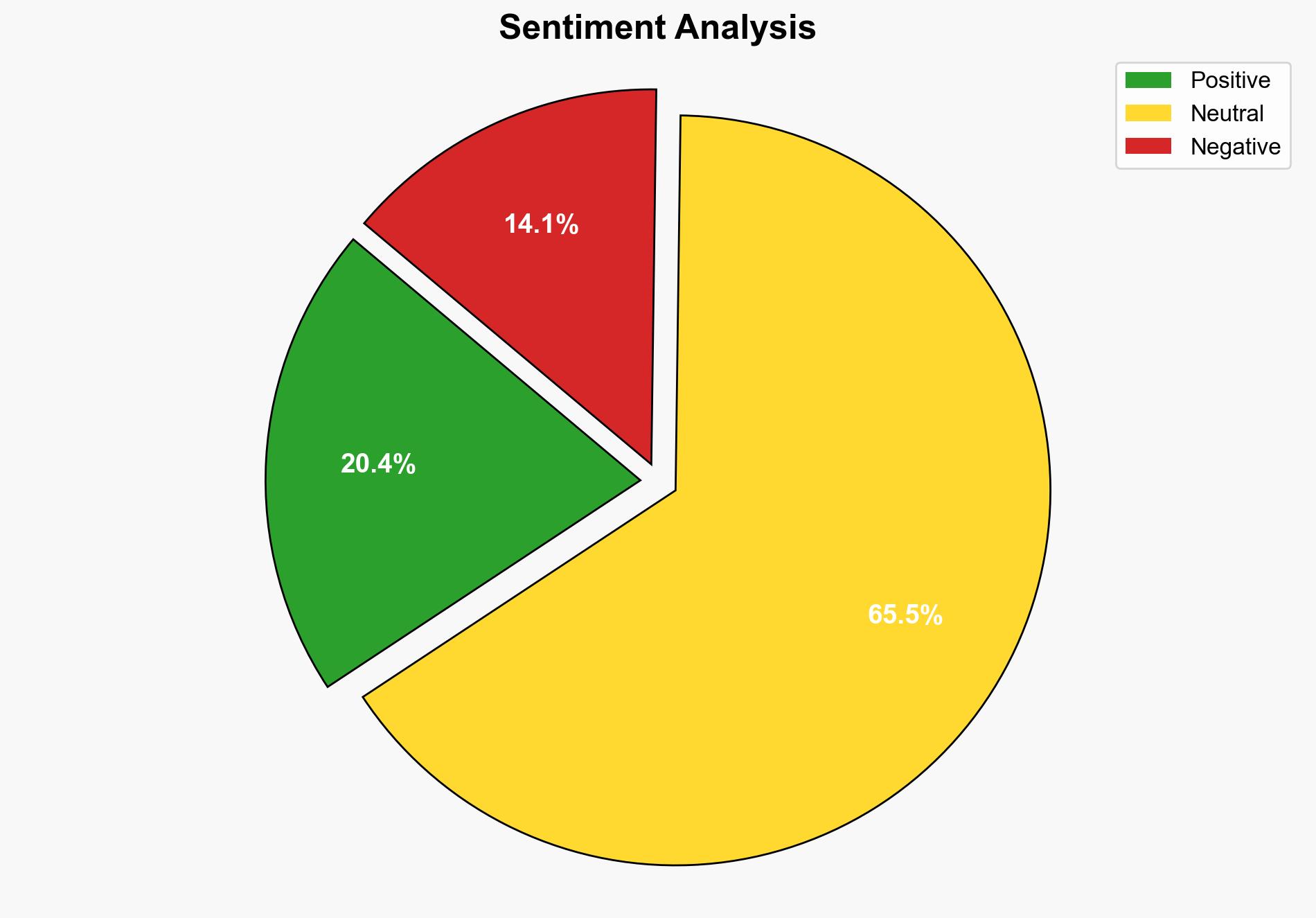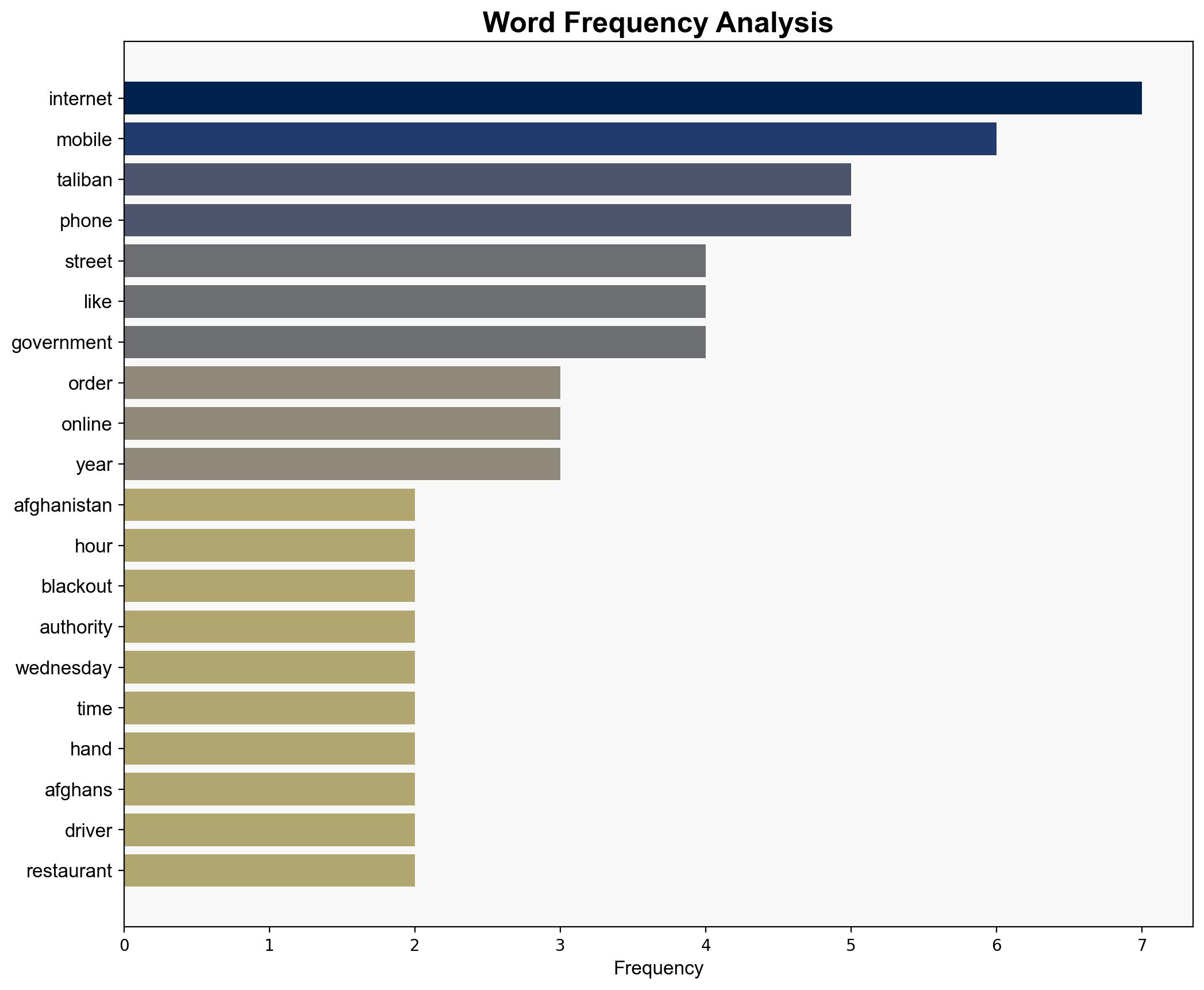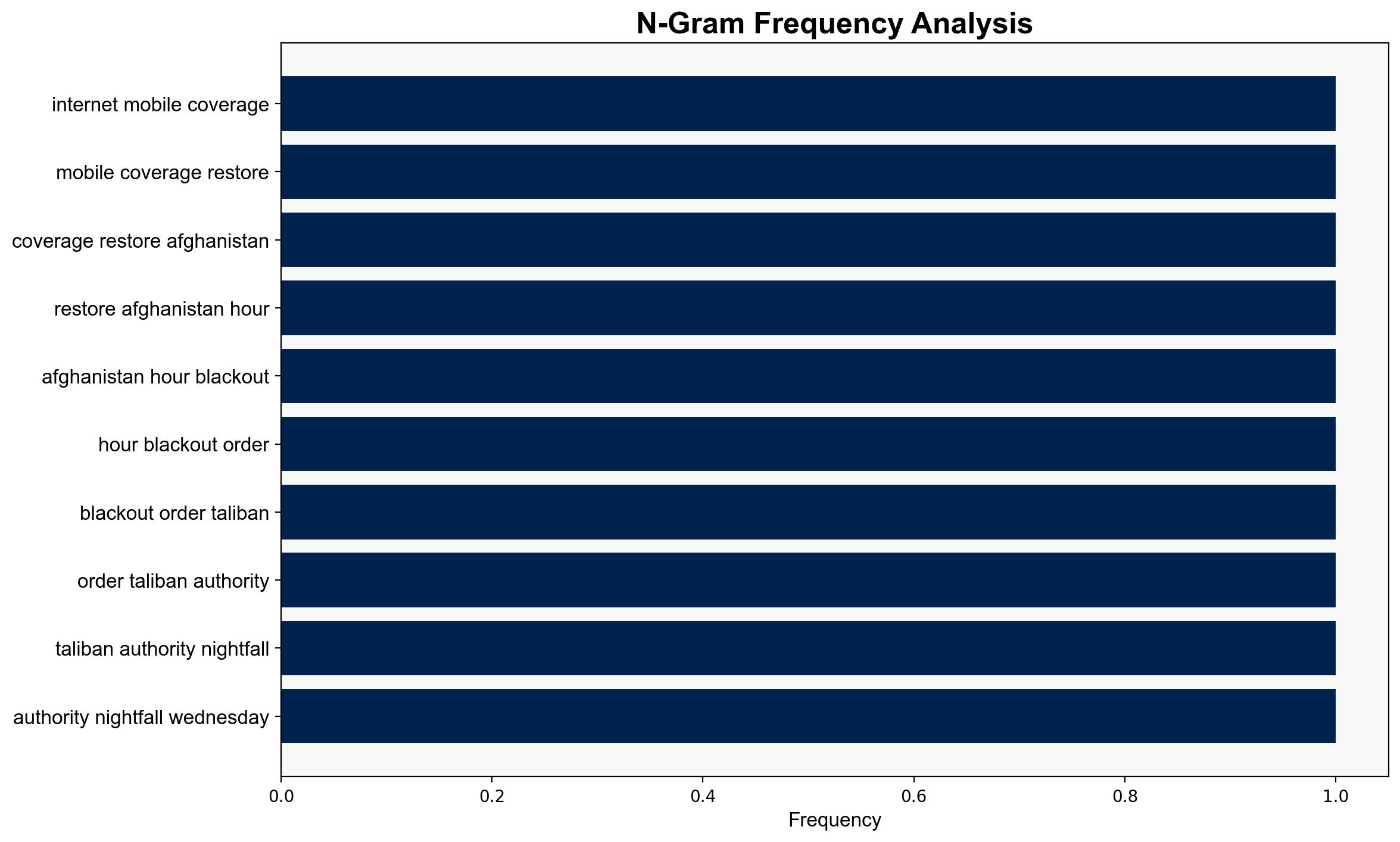‘I’m breathing again’ Afghans relieved with internet restored after blackout – ABC News (AU)
Published on: 2025-10-01
Intelligence Report: ‘I’m breathing again’ Afghans relieved with internet restored after blackout – ABC News (AU)
1. BLUF (Bottom Line Up Front)
The restoration of internet services in Afghanistan following a blackout imposed by Taliban authorities highlights the regime’s control over communication channels and its potential impact on social stability and economic activities. The most supported hypothesis suggests that the blackout was a strategic move to suppress dissent and control information flow. Confidence level: Moderate. Recommended action: Monitor Taliban communication policies and support initiatives that enhance digital resilience in Afghanistan.
2. Competing Hypotheses
1. **Hypothesis A**: The internet blackout was a deliberate strategy by the Taliban to prevent the spread of dissent and control the narrative, especially in light of recent restrictions on women and other societal controls.
2. **Hypothesis B**: The blackout was primarily a technical failure or a precautionary measure due to security threats, rather than a deliberate suppression of communication.
Using ACH 2.0, Hypothesis A is better supported by the evidence, including the context of recent internet restrictions in provinces and the Taliban’s historical use of communication control to maintain power.
3. Key Assumptions and Red Flags
– **Assumptions**: Hypothesis A assumes the Taliban has both the capability and intent to control internet access as a means of social control.
– **Red Flags**: Lack of direct statements from the Taliban regarding the specific reasons for the blackout raises questions about transparency and intent.
– **Blind Spots**: Potential underestimation of technical issues or external cyber threats that could have contributed to the blackout.
4. Implications and Strategic Risks
The blackout underscores the fragility of Afghanistan’s digital infrastructure and its susceptibility to authoritarian control. This could lead to increased economic instability and exacerbate humanitarian crises. The psychological impact on the population, particularly women and students relying on online education, could fuel further unrest. Geopolitically, this situation may attract international scrutiny and pressure on the Taliban regime.
5. Recommendations and Outlook
- Encourage international organizations to invest in Afghanistan’s digital infrastructure to reduce vulnerability to future blackouts.
- Support initiatives that promote digital literacy and resilience among Afghan citizens.
- Scenario Projections:
- Best: Increased international support leads to improved digital infrastructure and reduced control by the Taliban.
- Worst: Continued blackouts and restrictions lead to significant social unrest and economic decline.
- Most Likely: Periodic blackouts continue as a tool for control, with limited international intervention.
6. Key Individuals and Entities
– Mohammad Rafi (Mobile phone shop owner)
– Sohrab Ahmadi (Delivery driver)
– Attaullah Zaid (Balkh provincial spokesman)
– Hibatullah Akhundzada (Taliban’s supreme leader)
7. Thematic Tags
national security threats, cybersecurity, counter-terrorism, regional focus





